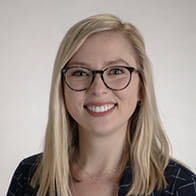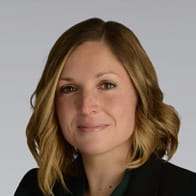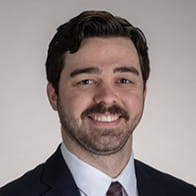- Home
- Professionals
- Residency Programs and Fellowships
- Pharmacy Residency
- Pharmacy Residency in Kansas City
- Infectious Diseases Pharmacy Residency


Residents at The University of Kansas Health System contribute to the health system’s vision to lead the nation in caring, healing, teaching and discovering. The postgraduate year 2 (PGY2) infectious diseases (ID) pharmacy residency program builds upon Doctor of Pharmacy (PharmD) education and PGY1 pharmacy residency training to develop pharmacist practitioners with knowledge, skills and abilities as defined in the educational competency areas, goals and objectives for advanced practice areas. Specific to the PGY2 ID pharmacy residency program at the health system, these include clinical infectious diseases pharmacy practice and antimicrobial stewardship program (ASP) management. Residents who successfully complete the residency program are prepared for advanced patient care or other specialized positions and board certification.
The PGY2 infectious diseases residency at The University of Kansas Health System is a 12-month program designed to provide residents with robust learning experiences in the management of clinical infectious diseases and antimicrobial stewardship program practices. Longitudinal responsibilities include participation in the antimicrobial stewardship program, inpatient pharmacy staffing, and research.
As a member of the ID/ASP pharmacist team, the PGY2 ID resident works closely with the ID physicians and fellows, particularly the ASP medical directors. Additionally, the ID/ASP pharmacist team rotates coverage of 9 consult services that manage a diverse patient population, including general services for patients with numerous comorbidities and infections such as cystic fibrosis, human immunodeficiency virus and mycobacterial infections. Dedicated services care for patients with hematologic malignancies and cellular therapeutics, blood and marrow transplants, and solid organ transplants. For more information on the infectious diseases division within the School of Medicine, faculty, research, and fellowship program, please visit the University of Kansas Medical Center website. The PGY2 pharmacy resident will have the opportunity to actively participate in educational opportunities offered through the infectious diseases fellowship program and the University of Kansas School of Pharmacy.
Follow us on Instagram @tukhspharmres
The University of Kansas Health System
Eric Gregory, PharmD, MS, BCIDP, DPLA
Pharmacy school: Butler University
PGY1: University of Kentucky
PGY2: University of Kentucky
Practice/Research interests: Clinical pharmacokinetics/pharmacodynamics, antimicrobial stewardship, transplant infectious diseases
Phone: 913-588-1063
Follow us on Instagram @tukhspharmres
Hometown: Fulton, Missouri
Pharmacy school: University of Missouri – Kansas City
PGY1: Cox Health Center Branson
Practice/Research interests: Antimicrobial stewardship, opportunistic infections and antimicrobial resistance
Hobbies: Reading, going to the movie theater, golfing and fantasy football.
Why I chose The University of Kansas Health System: I chose The University of Kansas Health System because of the community. I was introduced to the program early on when looking at PGY2 programs. From our first conversations, I felt the program was one I would thrive in based on their kindness, integrity and enthusiasm for educating others. This residency embodies the aspects I want to exhibit as a person, and as a result, I knew it was the right choice for my opportunity to grow.
The PGY2 infectious diseases residency at The University of Kansas Health System is tailored to the interests and the career goals of each resident. The residency year is organized into learning experiences as further described below.
| Required learning experiences (9) | Duration |
| Orientation | 2-4 weeks |
| General infectious diseases consults 1 | 3-5 weeks |
| General infectious diseases consults 2 | 3-5 weeks |
| General infectious diseases consults with precepting | 3-5 weeks |
| Transplant infectious diseases consults | 3-5 weeks |
| Clinical antimicrobial stewardship program 1 | 3-5 weeks |
| Clinical antimicrobial stewardship program 2 | 3-5 weeks |
| Antimicrobial stewardship program administration | 3-5 weeks |
| Clinical microbiology laboratory | 3-5 weeks |
| Elective learning experiences (Choose 4) * | Duration |
| Clinical pharmacokinetics/pharmacodynamics | 2-4 weeks |
| Human immunodeficiency virus clinic | 2-4 weeks |
| Outpatient infectious diseases clinic | 2-4 weeks |
| Allogeneic blood and marrow transplant | 2-4 weeks |
| Solid organ transplant | 2-4 weeks |
| Medical intensive care unit | 2-4 weeks |
| Internal medicine | 2-4 weeks |
| Required longitudinal learning experiences | Duration |
| Longitudinal antimicrobial stewardship program | 52 weeks |
| Research | 52 weeks |
| Inpatient pharmacy departmental service | 52 weeks, 8-hour shifts every 4th weekend |
| *Other elective learning experiences may be chosen and/or developed based on resident interest and preceptor availability (e.g., Transplant infectious diseases consults 2, General infectious diseases consults 3). | |
There are many opportunities to customize the program to fit the resident’s individual interests through elective learning experiences. Additional rotations may be developed in addition to those listed here. Please contact the RPD for additional information.

Pharmacy school: University of Michigan
PGY1: University of Wisconsin Health
PGY2: Michigan Medicine
Practice/Research interests: Antimicrobial stewardship, diagnostic stewardship and clinical pharmacokinetics/pharmacodynamics

Pharmacy school: University of Colorado, Skaggs School of Pharmacy
PGY1: Centura St. Anthony Hospital
PGY2: The University of Kansas Health System
Practice/Research interests: Infectious diseases in immunocompromised patient populations, antimicrobial stewardship

Pharmacy school: University of Kansas
PGY1: Houston Methodist Hospital
PGY2: Houston Methodist Hospital
Practice/Research interests: Clinical pharmacokinetics/pharmacodynamics, antimicrobial resistance, antimicrobial stewardship

Pharmacy school: University of Missouri – Kansas City
PGY1: Ascension Via Christi Hospitals
PGY2: The Ohio State University Wexner Medical Center
Practice/Research Interests: Nontuberculous mycobacterial infections, HIV, gram-negative resistance, antimicrobial stewardship technologies, antimicrobial allergies
National matching services (NMS) code: 619955
We are an equal employment opportunity employer without regard to a person’s race, color, religion, sex (including pregnancy, gender identity and sexual orientation), national origin, ancestry, age (40 or older), disability, veteran status or genetic information.